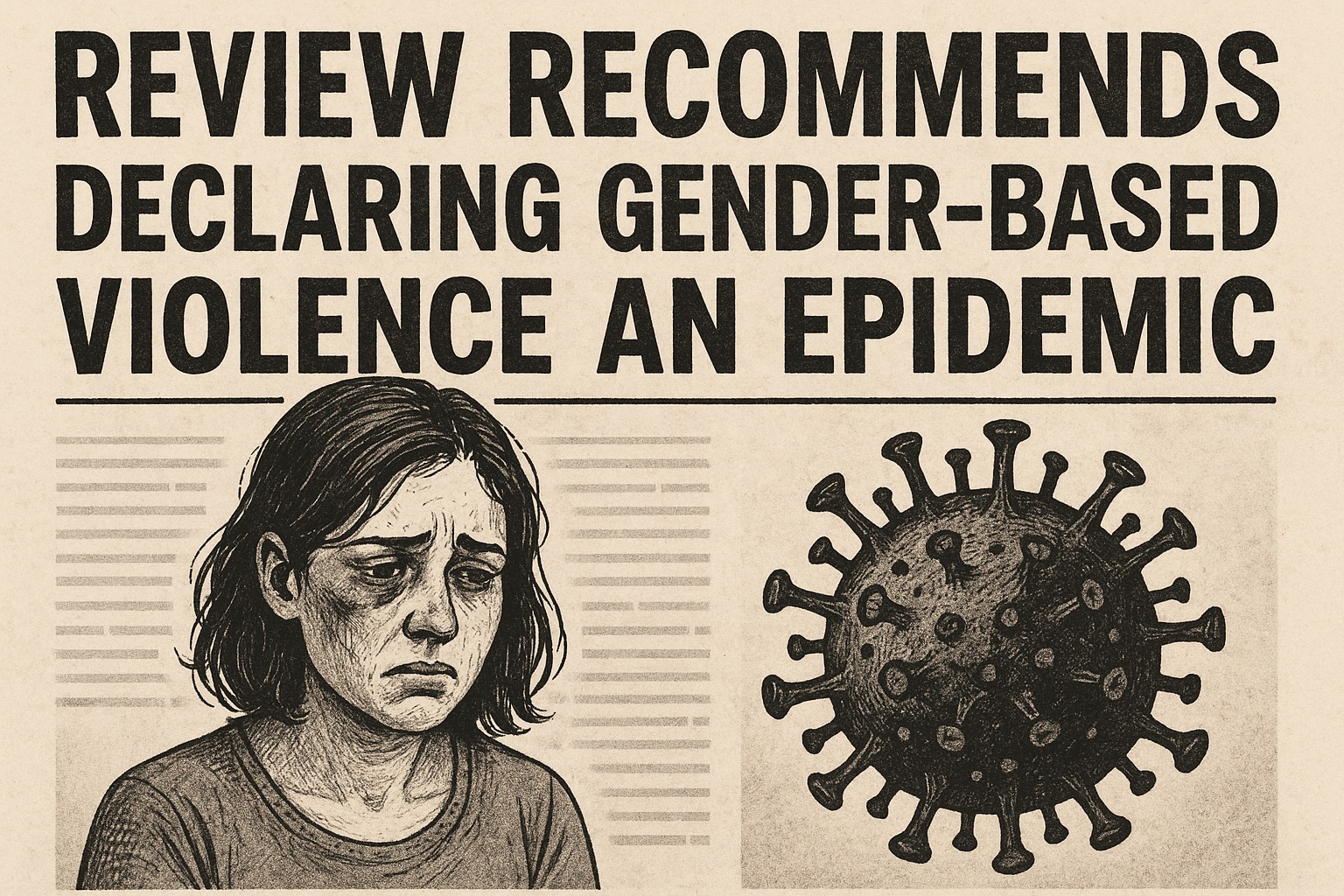📰 BC Review Recommends Declaring Gender-Based Violence an Epidemic
An independent review led by Dr. Kim Stanton recommends British Columbia declare gender-based violence (GBV) an epidemic, citing systemic failures and urgent reforms. Learn what the report says, why it matters, and how BC can act.

British Columbia is facing a critical reckoning with gender-based violence (GBV). A landmark independent review, led by Dr. Kim Stanton, urges the provincial government to declare gender-based violence an epidemic, aligning BC with calls across Canada to treat intimate partner violence (IPV) and femicide as public health emergencies. The report highlights systemic failures in the justice system, policing, and survivor supports, while recommending a sweeping reform agenda.
What the Stanton Review Found
The review was commissioned following rising femicides and public concern. Its findings paint a stark picture:
Systemic Failures: Survivors encounter delayed legal processes, inadequate police response, and limited access to victim services.
Underreporting: Approximately 80% of IPV cases and 94% of sexual assault cases in BC go unreported.
Widespread Prevalence: Over 50% of women in BC experience IPV at some point in their lives.
Fatal Outcomes: In just a few months, at least five women were killed by intimate partners, highlighting the life-and-death stakes.
Why Call It an Epidemic?
Declaring GBV an epidemic is not just symbolic — it reframes the crisis as a public health emergency requiring cross-sector solutions. Much like COVID-19 mobilized government, healthcare, and community resources, an epidemic declaration would:
Prioritize prevention and survivor support funding.
Trigger cross-ministerial collaboration (health, housing, justice, education).
Validate survivors’ experiences by acknowledging GBV as a systemic crisis, not isolated incidents.
Key Recommendations from the Review
Dr. Stanton outlined a nine-point reform blueprint that, if adopted, could transform BC’s response:
Declare GBV an Epidemic: Public acknowledgment to drive policy urgency.
Independent Oversight Body: A permanent watchdog to monitor progress and hold institutions accountable.
Data Strategy: Province-wide standardized data collection to measure IPV and GBV trends.
Stable Funding: Multi-year, predictable funding for shelters, crisis lines, and counseling services.
Police Training & Reform: Mandating trauma-informed approaches to survivors.
Justice System Improvements: Specialized courts and fast-tracked restraining orders.
Housing Solutions: Dedicated funding for safe, affordable housing for survivors.
Prevention Programs: Community education, especially targeting youth and men.
Collaboration Across Ministries: Health, housing, and education must work alongside justice.
Community & Advocacy Response
The Ending Violence Association of BC (EVA BC) welcomed the review, calling it a “turning point.” Advocacy groups stress that while BC has made incremental progress, piecemeal funding and pilot programs are insufficient against the scale of violence.
Unions, Indigenous leaders, and survivor groups have also echoed support, noting that Indigenous women, LGBTQ2S+ individuals, and immigrant women face even greater barriers to safety.
What Happens Next?
The BC government is under pressure to adopt the review’s recommendations. While it has invested in housing and victim services, critics argue the absence of an epidemic declaration sends the wrong message at a time when femicide and IPV deaths are rising.
Some municipalities in BC have already declared GBV an epidemic locally, showing grassroots recognition that survivors cannot wait.
Conclusion
Dr. Stanton’s review is a clarion call: gender-based violence is not a private matter but a provincial crisis. Declaring GBV an epidemic would set the stage for systemic reform — from housing and healthcare to policing and justice. For survivors, it could mean the difference between ongoing cycles of abuse and a path to safety, dignity, and justice.
British Columbia has an opportunity to lead the country in tackling GBV head-on. The question remains: will the province act with the urgency this moment demands?
FAQs
1. What did Dr. Kim Stanton’s review recommend for BC?
It recommended that British Columbia declare gender-based violence an epidemic and adopt a nine-point reform plan.
2. Why should GBV be declared an epidemic in BC?
Because GBV affects over half of women in the province, is severely underreported, and has led to rising femicides, making it a public health emergency.
3. What are the key reforms suggested in the review?
Reforms include independent oversight, stable funding, police reform, better data collection, housing for survivors, and specialized justice processes.
4. How widespread is gender-based violence in BC?
About 50% of women in BC experience IPV, and 94% of sexual assaults go unreported, showing the issue’s hidden scale.
5. Has the BC government acted yet?
The government has made investments but has not yet declared GBV an epidemic, sparking criticism from advocacy groups.
